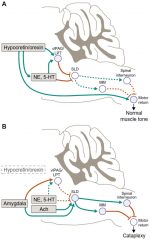

Insomnia is one of the most common sleep disorders and is characterized by frequent difficulty falling asleep or staying asleep. The constant disruption of deep sleep often leads to frequent morning headaches and excessive daytime sleepiness. If you suffer from sleep apnea, you may experience as many as 100 to 200 involuntary breathing pauses – also known as apneic events – every single night. Central sleep apnea is far less common and occurs when the brain fails to send the appropriate signals to the breathing muscles that initiate respiration.Obstructive sleep apnea occurs when air can’t flow into or out of your nose or mouth – even when you’re making an effort to breathe.Take the sleep apnea quiz There are two types of sleep apnea: Our sleep apnea quiz evaluates risk factors like snoring, breathing pauses during sleep, fatigue and obesity and gives you an idea of what to do next based on your results. Untreated sleep apnea can lead to other health conditions, including high blood pressure, heart disease, stroke, diabetes and depression. An estimated 18 million Americans live with sleep apnea. Sleep apnea occurs in men and women of all age groups, but it’s most common in overweight men. It’s important to detect and treat early because it can sometimes cause irregular heartbeat, high blood pressure, heart attack and stroke. Sleep apnea is a potentially life-threatening disorder that occurs when breathing is interrupted during sleep. The specialists at Aurora Sleep Medicine Centers diagnose and treat a wide variety of sleep disorders, including sleep apnea, insomnia, narcolepsy, sleep paralysis and more. They can also put you in touch with narcolepsy organisations or support groups, such as Narcolepsy UK.Whether you can’t fall asleep, can’t stop falling asleep, or simply experience poor sleep quality, chances are good that there’s a sleep disorder to explain your symptoms.
CATAPLEXY SLEEP DISORDER HOW TO
They can advise you about how to minimise the effect narcolepsy has on your daily life. Speak to a GP if you have narcolepsy and it's making you feel low or depressed.

automatic behaviour – continuing with an activity without having any recollection of it afterwards.restless sleep – for example, having hot flushes, waking up frequently, having vivid nightmares, or physically acting out dreams.hallucinations – seeing or hearing things that are not real, particularly when going to sleep or waking up a presence in the bedroom is the most commonly reported hallucination.Narcolepsy can also cause a number of other symptoms, including: Although sleep paralysis does not cause any harm, being unable to move can be frightening. The episodes can last from a few seconds to several minutes. This is a temporary inability to move or speak that occurs when waking up or falling asleep. Some people with narcolepsy experience episodes of sleep paralysis. In an attempt to avoid attacks, some people may become emotionally withdrawn and socially isolated. Some people with narcolepsy have cataplexy attacks once or twice a year, while others have them several times a day.

double vision or finding it difficult to focusĬataplexy attacks are usually triggered by an emotion, such as excitement, laughter, anger or surprise.Īttacks can last from a few seconds to several minutes.Most people who have narcolepsy also experience cataplexy, which is sudden temporary muscle weakness or loss of muscular control.

If narcolepsy is not well controlled, sleep attacks may happen several times a day. Some people will only have "microsleeps" lasting a few seconds, whereas others may fall asleep for several minutes. The length of time a sleep attack lasts will vary from person to person. Sleep attacks, where you fall asleep suddenly and without warning, are also common in people with narcolepsy. People with narcolepsy may be misjudged as being lazy or rude. It can have a significant impact on everyday life.įeeling drowsy throughout the day and struggling to stay awake makes it difficult to concentrate at work or school. Excessive daytime sleepinessĮxcessive daytime sleepiness is usually the first sign of narcolepsy. If necessary, you'll be referred to a sleep disorder specialist, who can confirm the diagnosis.įind out more about diagnosing narcolepsy. You should see a GP if you think you may have narcolepsy so they can find out what's causing your symptoms. Narcolepsy is usually a long-term (chronic) condition, although some of the symptoms may improve as you get older. Symptoms may develop slowly over a number of years, or suddenly over the course of a few weeks. Some people have symptoms regularly, while others are less frequently affected. Not everyone with narcolepsy has the same symptoms.


 0 kommentar(er)
0 kommentar(er)
